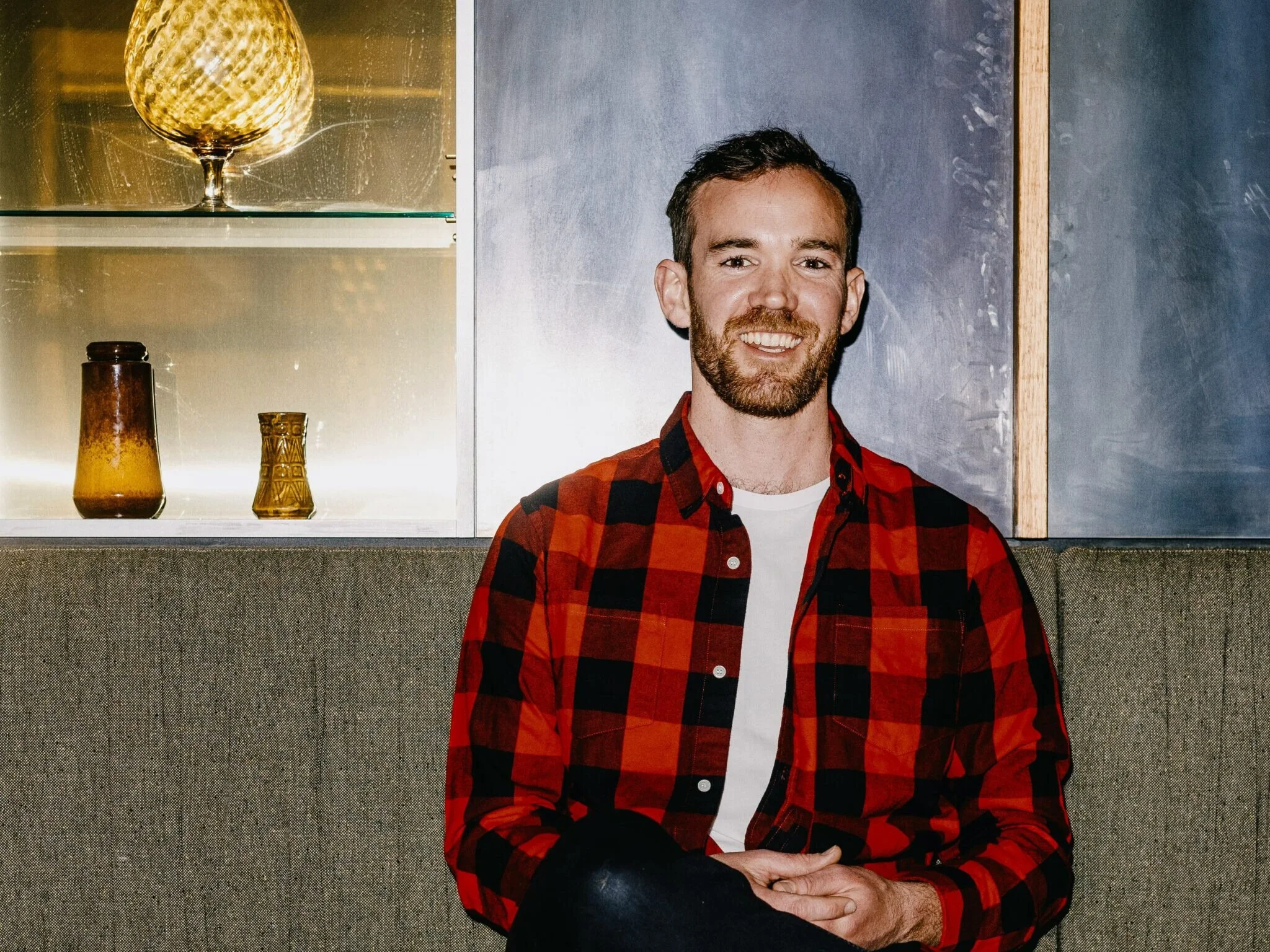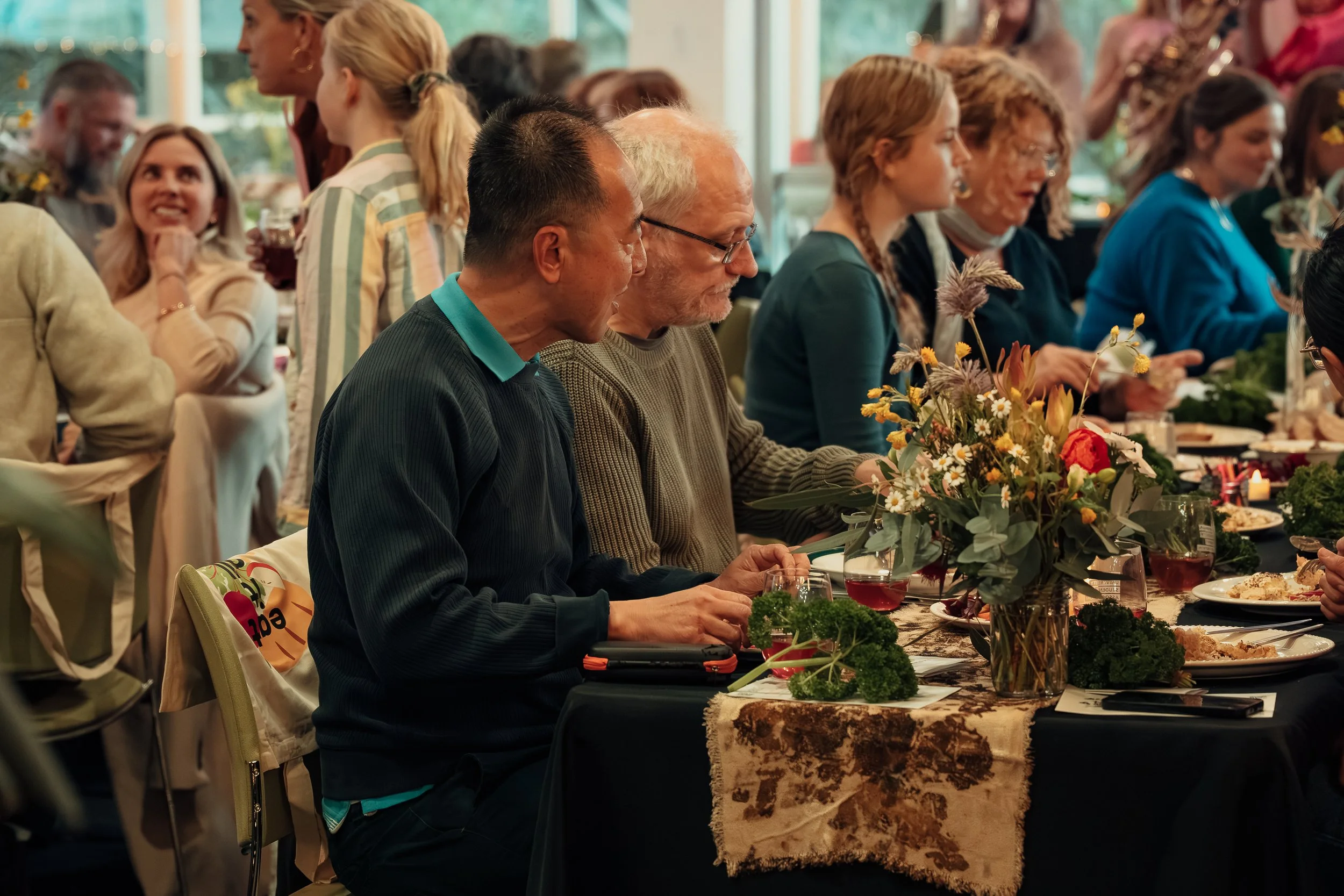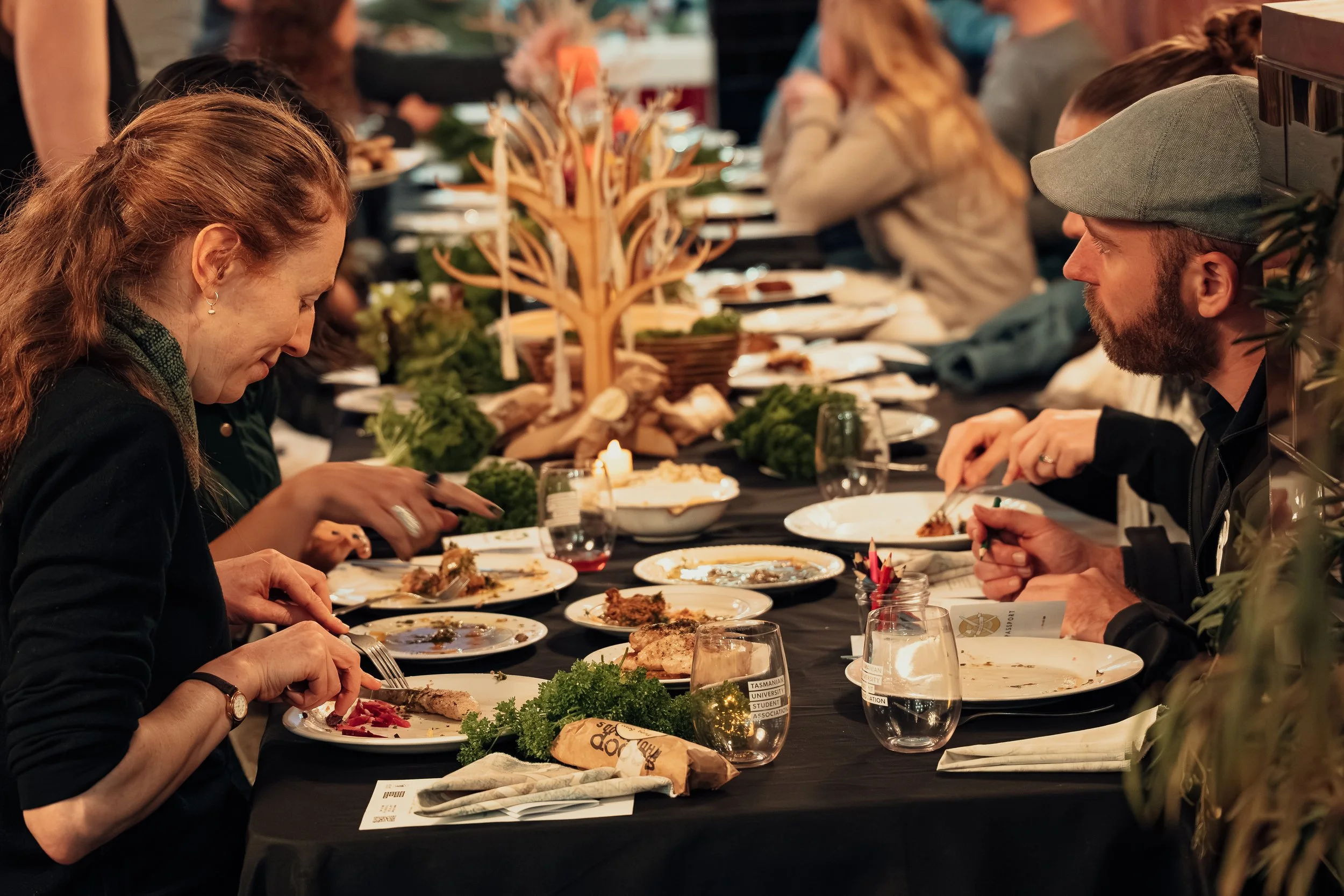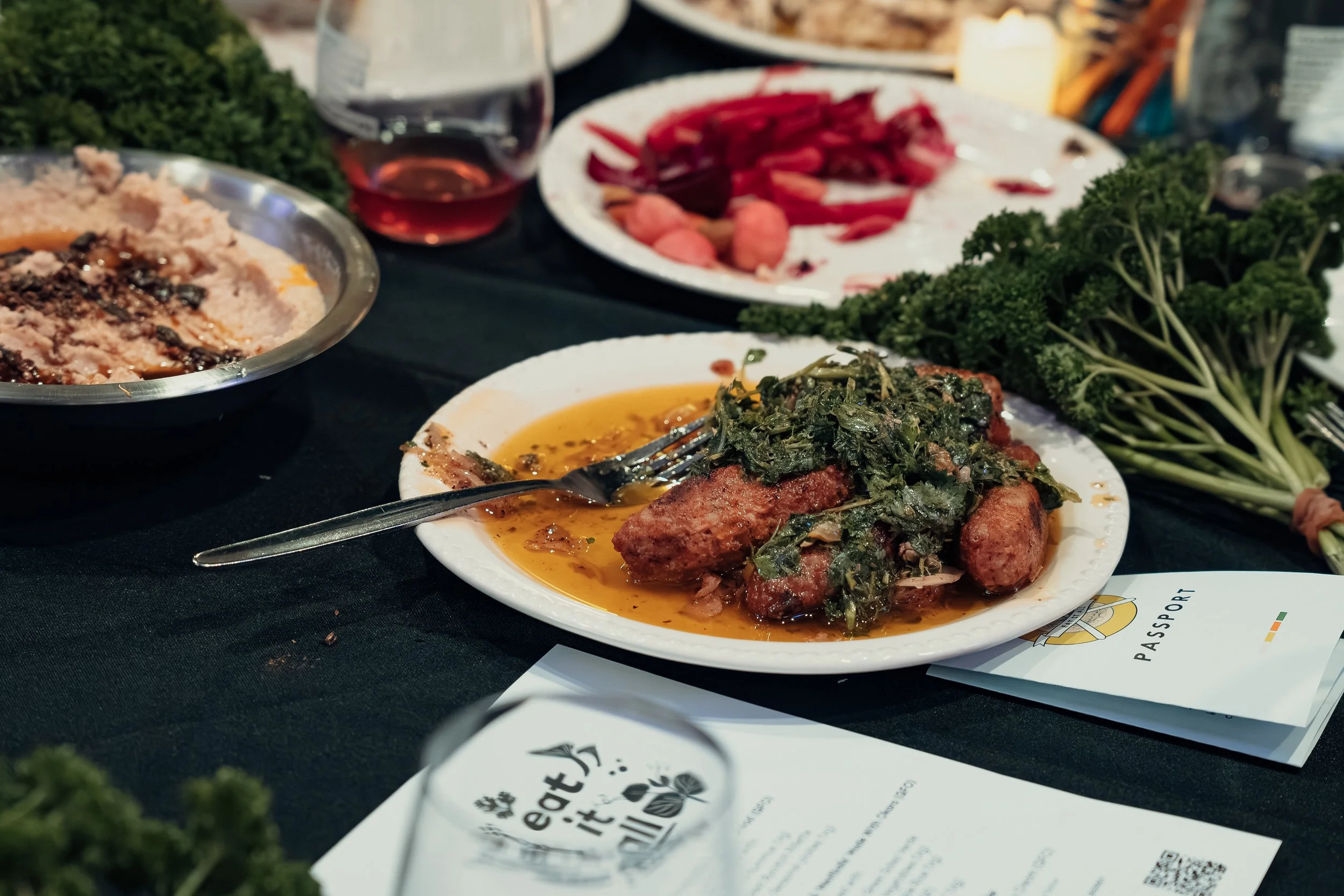The Tasmanian Dinner Turning Food Waste Into a Feast
A pedigreed chef, a passionate local service team, and 200 guests: it’s a recipe for a night of exceptional dining replicated in hundreds of restaurants around Tasmania every night of the week. But one uncommon factor sets this dinner apart from the rest.
▼
Sam Bray (image: Sileo Media for agriCULTURED 2025)
When he started his hospitality career as a dishhand in an Adelaide pub at 15 years old, Sam Bray probably couldn’t have pictured where a life working with food would take him. One chef’s apprenticeship and some decades later - and via an international resume that includes stints in London, Montreal, and at three Michelin-star Copenhagen restaurant noma - Sam now calls Lutruwita/Tasmania home. And, while he’s still cooking, the philosophy with which he approaches food has been refined and clarified by life at the bottom of the world.
“Moving to Tassie and being surrounded by all of this incredible nature really ticked my brain over to start thinking more about food systems,” he says. “The hospitality industry has traditionally been pretty poor at managing waste and embedding sustainability practices, but I started to see that, as an industry that feeds so many people every day, it also has incredible potential to create positive change.”
That passion for sustainability led Sam to apply for - and win - the Tranche Scholarship, a prestigious program supporting emerging hospitality leaders to travel, explore, and ultimately apply their learnings about an area of interest. For Sam, that meant a months-long trip around Europe, beginning in Copenhagen at culinary royalty René Redzepis’ MAD Academy, a multi-day deep-dive into business, culture, the environment and sustainability for an intake of just 20 students from around the world.
“I wanted to bounce around Europe and see what the best in the business were doing sustainability-wise to change the game,” Sam says. “Starting with a week of lectures and producer visits at MAD Academy helped me to see how businesses can be structured to be fundamentally better, and make lofty ideas work.”
The remainder of Sam’s time abroad was spent attending a symposium of the European Union on food waste, and visiting and working in a number of restaurants around Europe doing their bit to reimagine food sustainability, a highlight of which was Helsinki’s Restaurant Nolla.
“Nolla means ‘zero’ in Finnish, and this is a fundamentally zero waste venue,” Sam says. “It’s a beautiful fine dining restaurant using only local and organic ingredients, with a huge stainless steel composter right in the middle of the dining room. To make a feature of the significant action they’re taking to change the industry made a lot of sense to me.”
Since his return to Tasmania, it’s no surprise that Sam has been hot property in the sustainability conversation, and has since penned a report for Hospitality Tasmania, and spoken at West By North West’s Regional Tourism Forum and agriCULTURED Festival. It made good sense, then, for him to head up Eat Well Tasmania’s third iteration of the ‘eat it all’ community dinner, a series that seeks to fight food waste with flavour, and connect eaters to the systems behind their food.
eat it all dinner (image: Toby Rudov)
Working alongside Eat Well Tasmania, the Tasmanian University Student Association (TUSA) and friends from the local chef world, Sam was tasked with designing a menu that wasted nothing and valued everything, to be served to more than 200 guests at UTAS’ Sandy Bay campus. Eat Well Tasmania Project Manager Libby Mckay says the eat it all dinner is a storytelling project about the intellect and passion that goes into food production.
“By engaging with well-known chefs like Sam, we’re able to show the community that if some stale bread or limp greens are good enough for a chef, they’re good enough for you at home,” she says. “We believe that to change behaviour and reduce food waste, we literally have to serve it up on a plate. The eat it all dinner is a place where we can sit together and learn, over incredible seasonal food that tastes great and tells a great story.”
Sam’s menu hinged on seconds produce, seafood by-catch, and - across all three courses - okara, the by-product of making tofu that is usually diverted to compost or animal feed, or wasted all together.
“I got forty kilos of these mushy soy beans that had had the fat and protein squished out of them, from James (Phelps) at SOYOYOY,” Sam says. “I wanted to prove a point about how versatile things like this can be, so I incorporated the okara into all three courses - a hummus, a take on meatballs, and an amazing vegan chocolate cake.”
eat it all dinner (image: Toby Rudov)
Sam’s menu also highlighted Pigeon Whole Bakers’ mottainai bread, a slow fermented sourdough made from the bakery’s own leftovers, alongside smoked bycatch rillette, saved and seasonal pickles, use-up-everything-green salsa verde, Balkan(ish) vegetable rice, and cevapcici - small, skinless sausages that made the most of three freezers’ worth of assorted varieties of sausages discovered in a supplier’s stocktake at just the right time.
“For us, food waste is wasted nutrition,” Libby says. “Sam’s menu is an example of how taking a different approach to food systems is good for the environment, good for the planet, and good for the community, while also acknowledging the time and passion that goes into producing delicious food.”
eat it all dinner (image: Toby Rudov)
Sam hopes that the eat it all dinner, and the greater conversations happening about the food system in Tasmania, will encourage everyday eaters to rethink how they buy, cook with and eat food.
“The biggest lever you can pull is to buy food from people, not big companies,” he says. “As a rule of thumb, if you can work out the name of the person who grew it or farmed it, that’s the best place to start.
“And we all need to cook more - that’s claiming the food system back. I challenge anyone to cook a delicious dinner of local produce for a bunch of friends, and not have a conversation about the world of food. There’s power in that.”




